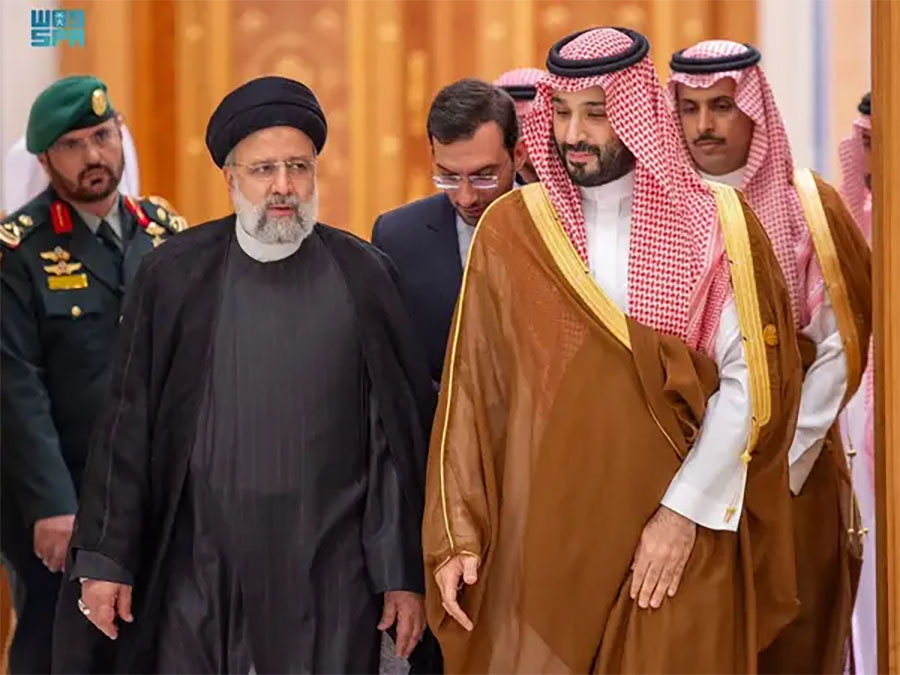Photo Credit: Getty Images
In a significant geopolitical development, Saudi Arabia and Iran have recently shown indications of pursuing normalization of relations. This potential thaw in their historically strained ties could mark a pivotal shift in Middle Eastern dynamics, with far-reaching implications for regional stability and international diplomacy.
The recent signals of reconciliation between Riyadh and Tehran come against a backdrop of evolving regional dynamics and global realignments. One catalyst for this potential rapprochement could be the change in leadership styles and priorities in both countries. Saudi Arabia, under Crown Prince Mohammed bin Salman, has pursued a more assertive foreign policy while simultaneously seeking economic diversification and modernization through initiatives like Vision 2030. Iran, facing international sanctions and economic challenges, may see value in de-escalating regional tensions to focus on domestic stabilization and economic recovery.
Furthermore, external pressures and geopolitical shifts have also played a role in prompting Saudi Arabia and Iran to reconsider their antagonistic relationship. The Biden administration's approach to the Middle East, including its efforts to revive the Iran nuclear deal (Joint Comprehensive Plan of Action), has created a diplomatic opening that both Riyadh and Tehran may seek to leverage. Additionally, the broader geopolitical landscape, including the rise of China and its increasing influence in the region, could incentivize regional actors to prioritize stability and cooperation over perpetual rivalry.
While the path to full normalization remains fraught with challenges and uncertainties, the initial steps taken by Saudi Arabia and Iran are noteworthy. Diplomatic gestures, such as the reopening of communication channels and engagement in indirect talks, indicate a willingness to explore the possibility of coexistence and cooperation. Confidence-building measures, including prisoner swaps and cultural exchanges, could further pave the way for substantive dialogue on critical regional issues, such as security arrangements, humanitarian crises, and economic collaboration.
The potential normalization of Saudi-Iranian relations holds implications beyond the immediate region. A reduction in tensions could mitigate the humanitarian impact of conflicts in Yemen and Syria, where both countries have backed opposing factions, and contribute to global energy stability, given their roles as major oil producers. Moreover, it could recalibrate alliances and influence dynamics across the Middle East, prompting other regional actors to reassess their positions and strategies.
While challenges persist, the recent moves toward normalization between Saudi Arabia and Iran signal a potentially transformative shift in Middle Eastern geopolitics. If sustained and expanded upon, this process could offer a blueprint for conflict resolution in other volatile regions and contribute to a more stable and prosperous global order. As the international community watches these developments closely, the outcomes of Saudi-Iranian dialogue have the potential to reshape the geopolitical landscape in the years to come.


